#InspireInclusion
International Women's Day 2024


Dr Bing Guo is a Senior Lecturer in the Department of Civil and Environmental Engineering and a Co-Lead on the Water Innovation and Sustainability programme at the Institute.
Bing has experience in collaborating with local industry, such as Thames Water, and with initiatives in the local community such as through Water Rangers and the Rivers Trust alongside local organisation, Zero Carbon Guildford. She has proven collaboration is a brilliant way to create meaningful impact towards sustainability.
“I see a growing emphasis on community engagement and social justice aspects within environmental engineering, which I aim to incorporate into my work.”
Bing’s collaboration with Thames Water relates to SDG6 for Clean Water and Sanitation. Together, they seek to improve water quality and to reduce greenhouse gas emissions, also linking to SDG7 for Affordable and Clean Energy. Alongside that, Bing and Water Rangers monitor local river water quality by monitoring pollutant and pathogen levels. This example of citizen science enables anyone to get involved, driving real-world, tangible impact for the local community towards sustainability and combating climate change, in line with SDG13.
In the future, Bing sees the field of environmental engineering becoming even more crucial in facing the ever-increasing challenges related to climate change, resource depletion, and environmental degradation. With her research, she envisions a career trajectory that continues to evolve towards interdisciplinary collaborations, integrating cutting-edge technologies with sustainability principles to address these complex issues which is what the Institute for Sustainability at the University of Surrey can facilitate.
Bing is part of the Women’s Engineering Society which, like the Institute, provides opportunities for interdisciplinary collaboration.
“As a woman in environmental engineering, I've encountered, or observed other women academics facing, challenges such as gender bias, stereotyping, and a lack of representation in leadership positions as well as needing to balance my career advancement with family responsibilities which can be particularly demanding.
However, I also see benefits in being a woman in this field. My experiences help me in creating an environment where individuals from diverse backgrounds, including women and underrepresented groups, feel valued, respected, and empowered to contribute their unique perspectives and talents towards advancing environmental engineering and sustainability.
For instance, I'm passionate about mentoring and supporting other women pursuing careers in Science, Technology, Engineering and Mathematics (STEM) fields, and I believe my own experiences can provide valuable insights and encouragement to them.”
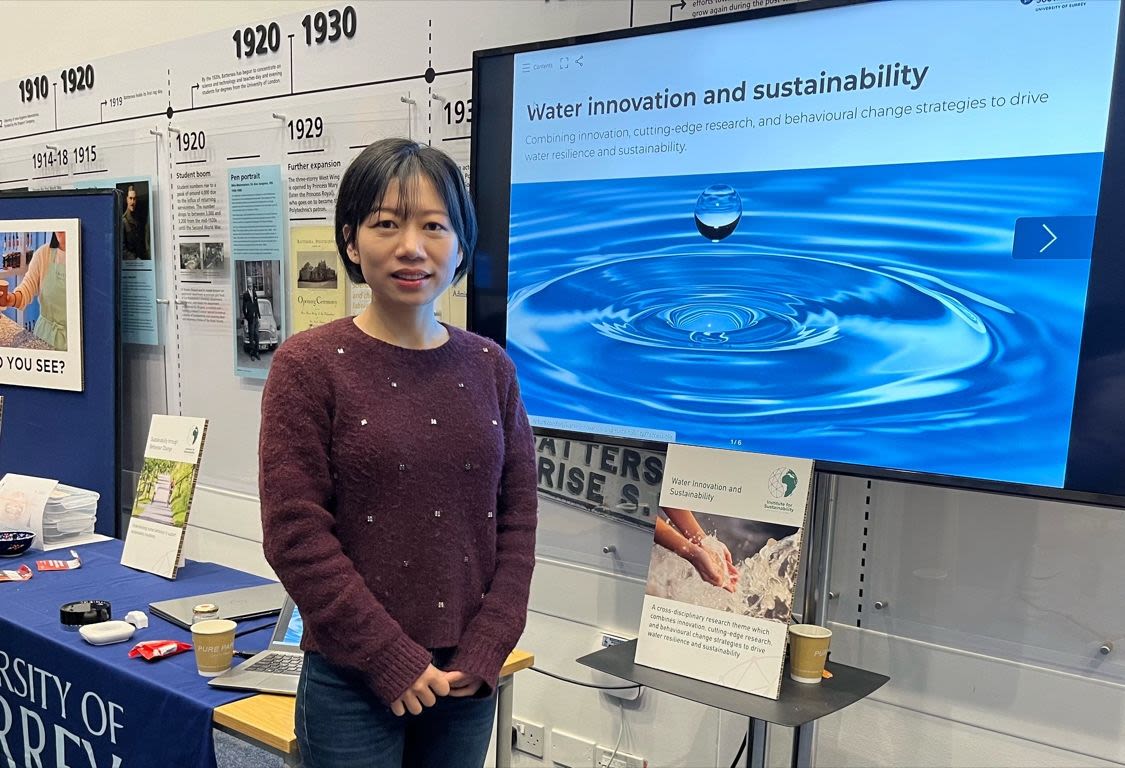
Dr Bing Guo at the Institute for Sustainability Annual Showcase, December 2023.
Dr Bing Guo at the Institute for Sustainability Annual Showcase, December 2023.
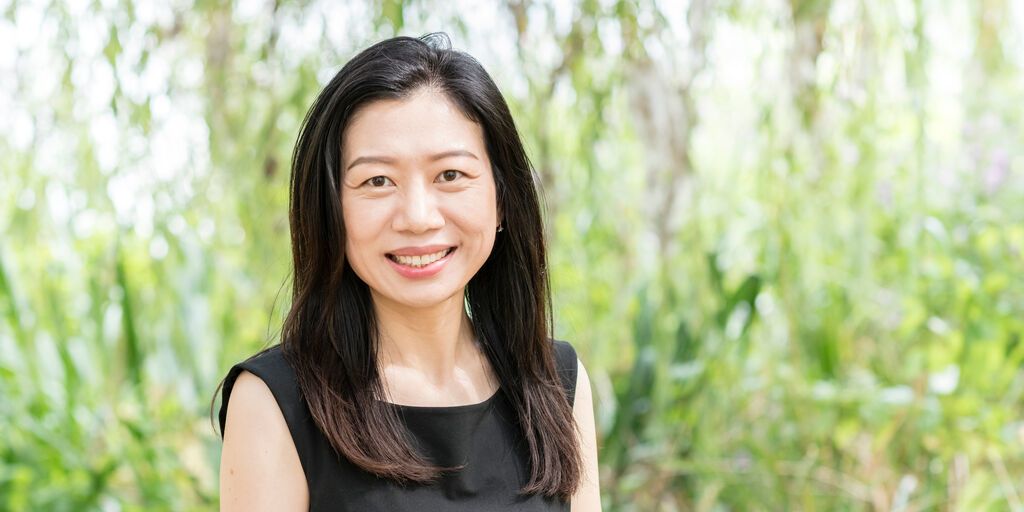
Dr Damiete Emmanuel-Yusuf is a Research Fellow in Sustainable Transitions at the Institute for Sustainability. Damiete’s role is crucial in connecting the broad Fellowship of the Institute at the University of Surrey.
Along with the team, her role helps the research programmes within the Institute to integrate the multitude of scientific expertise across the many disciplines at the University, facilitating interdisciplinary research collaborations.
She is also developing a research portfolio based on sustainability transitions as they relate to each of the Institute’s programmes.
Damiete completed her PhD at the Centre for Environment and Sustainability at the University of Surrey after a Master’s in Corporate Environmental Management. As a Research Fellow, she worked on several sustainability projects investigating bioenergy supply chains, transitions pathways to a low carbon economy and the upscaling of smart local energy systems.
"A rewarding career is one in which a woman can work flexibly due to the additional roles required outside the work environment as women."
The gender pay gap is also a pressing issue which prevents a truly equal, and sustainable working environment for women. Although some progress has been made, there is still a lot more work to be done. According to the latest figures from the Office for National Statistics, the full-time employee gender pay gap in April 2023 stood at 7.7% in the UK.
A particular inspirational figure for Damiete is her colleague, the Director of Operations, Innovation and Partnerships at the Institute for Sustainability, Nathalie Hinds. Damiete describes Nathalie’s hard work and zeal in establishing the Institute and her drive to ensure its success as admirable, in addition to being a great motivator and a strong support for the team. For Damiete, the presence of female role models in the workplace is essential to actualising the ambitions of other women.
“It is certainly great to have inspiring female role models in academia because you can relate to their experiences, and they can empathise with yours, being women themselves.
Having visible successful women leaders in the workplace will enhance the confidence of other women. As the saying goes, ‘you cannot be what you cannot see.’”
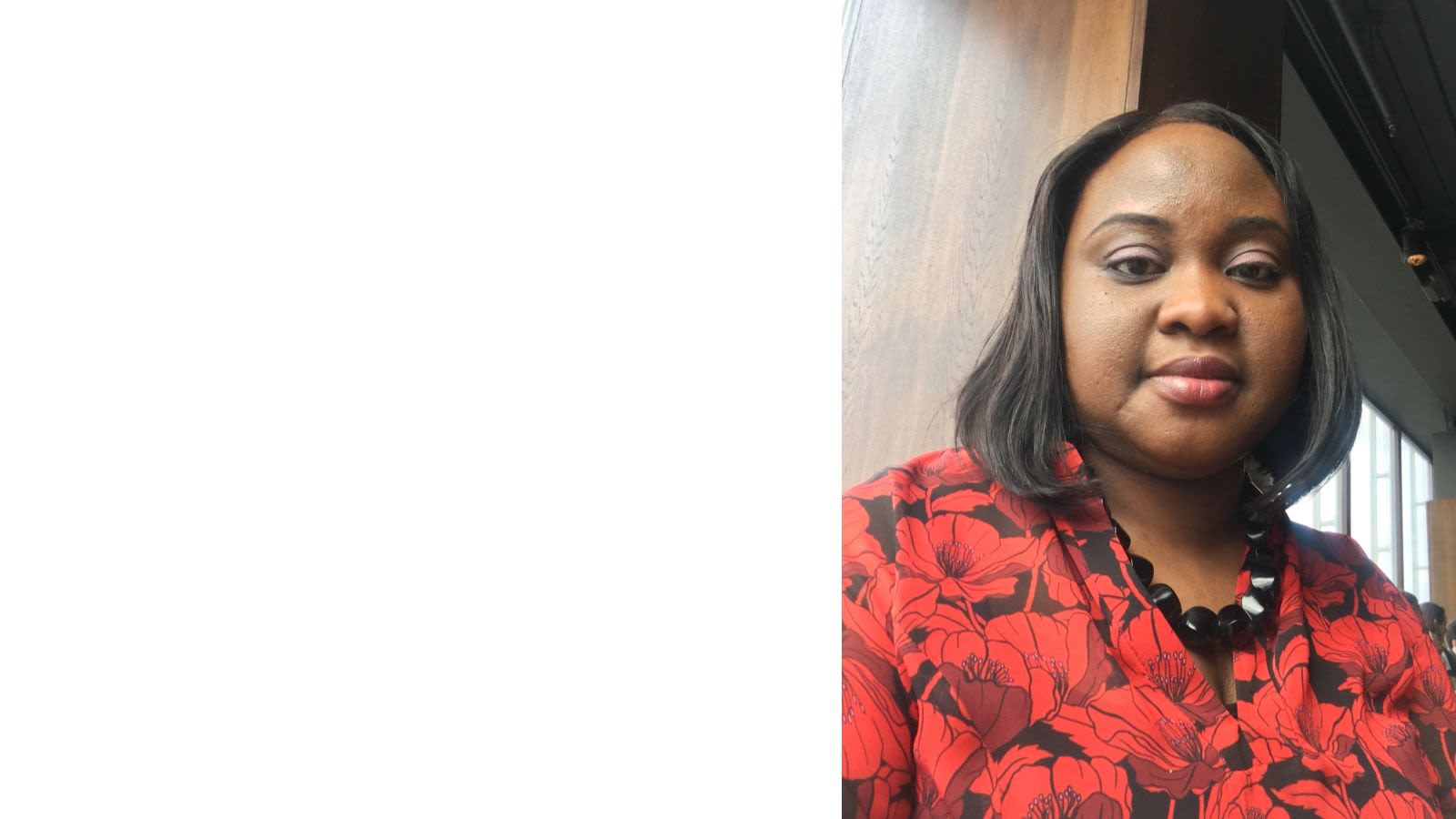
Dr Sarah Golding is a Knowledge Exchange Fellow at the School of Psychology, working for the Advancing Capacity for Climate and Environmental Social Science (ACCESS) network. Sarah cares deeply about the research she’s involved in, which explores human interactions with nature.
“People now talk about the twin crisis of climate change and biodiversity loss. We are nothing without nature and we have to protect it, as we’re all intertwined in this incredible system that we live within.”
She explained to me how nature is the centrality of her work and how it underpins health and wellbeing, relating to SDG3 and SDG15.
“Nature gives all of us new opportunities for learning, which people did particularly during lockdown. Nature is a huge source of comfort for people, a solace, which gives us so many benefits.”
Sarah believes it is important for early career researchers to be supported so that they can thrive in academic roles. During her PhD, her mentor was Professor Karen Rodham. This mentoring relationship occurred serendipitously, and Sarah thinks it helped her figure out how she could craft a sustainable career path within academia.
“Early career researchers can feel pressured to take on extra projects and responsibilities. This means we risk over-burdening ourselves and becoming burnt-out. Karen helped me learn how to manage my workload and maintain a work-life balance that works for me”.
Sarah acknowledged that it can sometimes be hard to find a supportive mentor, but she felt Karen’s mentorship helped her understand her own needs and boundaries. In Sarah’s words, Karen was endlessly kind, had a sense of humour and was willing to share her own vulnerabilities, which contributed to the success of the mentoring relationship.
“I believe it’s really important for women to have good, empathic role models and mentors, of any gender, to help aspiring academics feel safe, empowered and welcomed in academic spaces.”
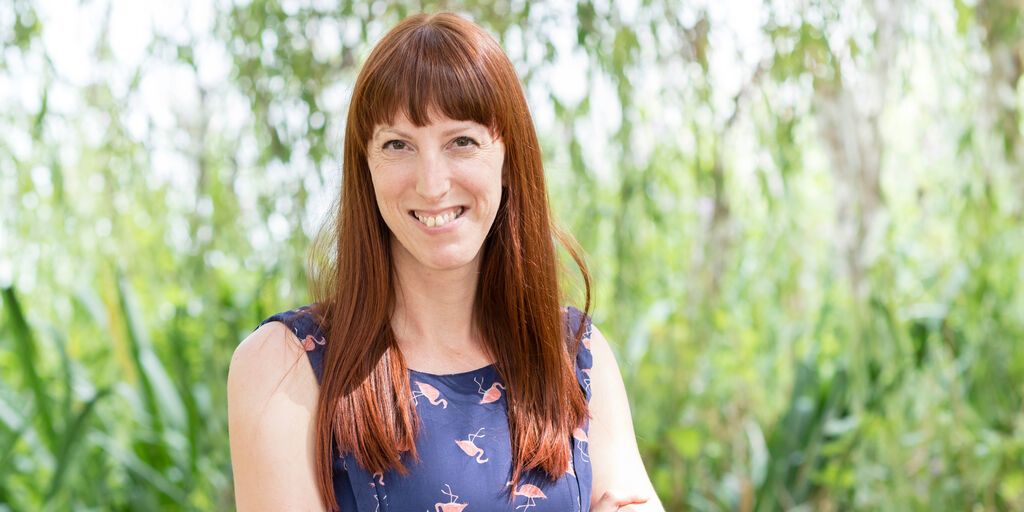
Dr Anastasia Loukianov is a Research Fellow within the Centre for the Understanding of Sustainable Prosperity (CUSP) and is a Co-Lead on the Institute’s Sustainability, creativity and communication programme.
Although using the arts is a long-standing means for storytelling, recent interest from sustainability researchers in using art and creative practices to engage audiences and imagine sustainable futures has surged.
However, without the proper conversations, the existing work within the arts and humanities on the potential of art in supporting the communication, imagination, and experience of more sustainable ways of living remains largely overlooked.
For Anastasia, in defining a rewarding career, it was important to separate the day-to-day working day with an overall journey within the working world. Job security, particularly for female academics when other factors such as home life and career progression are considered, is fundamental to success in the lifespan of a career.
“There is no such thing as a rewarding career without job security, which is a key concern for women. Women are proportionately more likely than men to be employed on fixed-term contracts, and even when they do receive permanent positions, there is a huge gender divide in professorships across universities in the UK.”
Encouraging women to be heard, as well as to find their voice, is a critical step in ensuring gender equality. Receiving appreciation from the support that Anastasia provides to her students, or when her work engages others, is particularly rewarding within her day-to-day work, but it is not sufficient for a rewarding career.
“I think that in our culture, women are still taught to be deferential and second-guess themselves, which can make it difficult to voice their opinions.”
Evidence shows that women tend to have a more holistic understanding of sustainability than men do, and can be more engaged, yet they are much less published than men. Similarly, because of what is termed the ‘good girl’ culture, women are also a lot more likely to take on voluntary, time-consuming roles that receive little recognition, including contributions to celebration days such as International Women’s Day.
To encompass this year’s theme, #inspireinclusion, Anastasia believes it is essential to provide visibility to publications by women, explicitly searching for the work of women - especially from those who are not cis-gendered, heterosexual, middle-class, white women - to cite both in research and teaching.
However, as she explained, this is very time-consuming as the academic system works on algorithms that rely on the number of views per article published. It is also down to a personal habit that can add feelings of guilt when it takes so much more time to do. Her practice has been inspired by her colleague and manager, Professor Kate Burningham, but an excellent and pioneering example of this practice is Dr Jana Bacevic’s course on Social Theory, in which, she has made a conscious effort of compiling a women-led syllabus.
“I would love to see men more actively involved in making it easier for women to excel as academics. We take on and carry out a lot more care work than men, both at home and in the office, and that is work that is highly necessary and beneficial, but traditionally undervalued and not recognised as value creation.”
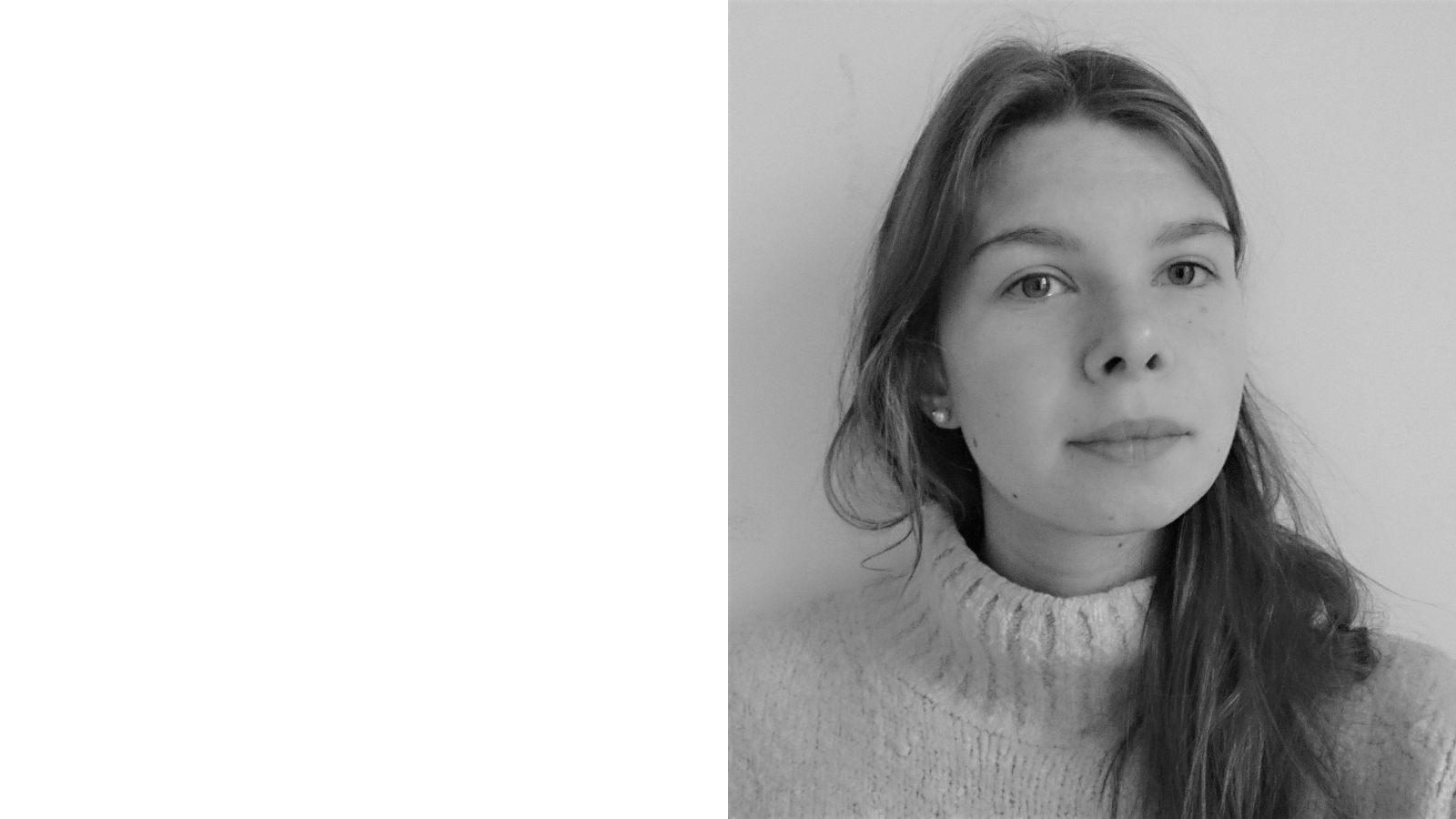
Dr Ruth Abrams is a Lecturer in Health Sciences. Her desire to stay in research and to grow as a researcher in spaces that promote the translation of knowledge while also balancing home life is critical to her in building a rewarding career. She experiences a very welcoming environment at the University of Surrey which helps to further this idea.
As Ruth explains, many people may come into the field of health sciences research to make a difference and that is still her driving principle.
“I particularly look at the healthcare workforce and we know that there's a lot of problems there. The trajectory to make a difference can feel quite slow. So, I try and find other, more immediate ways of making a difference. For example, I like to work with other researchers to improve methodological advancements, or by translating what we mean by making a difference into impact.”
Through staying flexible by not necessarily defining where she sees her career in a set timeframe, (i.e. three to five years), it helps Ruth to respond to new opportunities that are perhaps unanticipated or unexpected.
“What we may mean by a rewarding career, will change as each of us evolves.”
She hopes that in the near future, we start looking at academia as something you can come in and out of. This is difficult to achieve currently because of the requirements to build a large and continuous body of work, obtain publications, and to secure funding, which all takes a long time.
Being exposed to different environments where research happens, such as local councils or government bodies, would ensure visibility on the many ways of conducting research - and arguably having an impact. As Ruth phrased it, there are “different ways of making a difference”, building on SDG8 for decent work and economic growth, including equal pay across genders.
“Being a woman in the academic field relies on establishing boundaries and being able to do that differently in different life chapters - not too long ago, women weren't even permitted to be educated! My reasons for wanting to become a Fellow of the Institute were first and foremost, for believing in the cause and wanting to make sure that that the work I was doing was feeding into sustainability at Surrey.”
By looking at the role of women holistically in the workplace, Ruth can see big positive change. However, there is a clear awareness that this isn’t the lived experience for a lot of women although she feels fortunate to work with the colleagues she has. Her advice at work is to surround yourself with people who make you feel you can achieve great things. Building collegiality with colleagues is part of the collaboration that the Institute offers at Surrey and is noted by Fellows.
“I’ve learned how to work with others by watching how it’s done well at Surrey, and in the process have felt both heard and seen.”
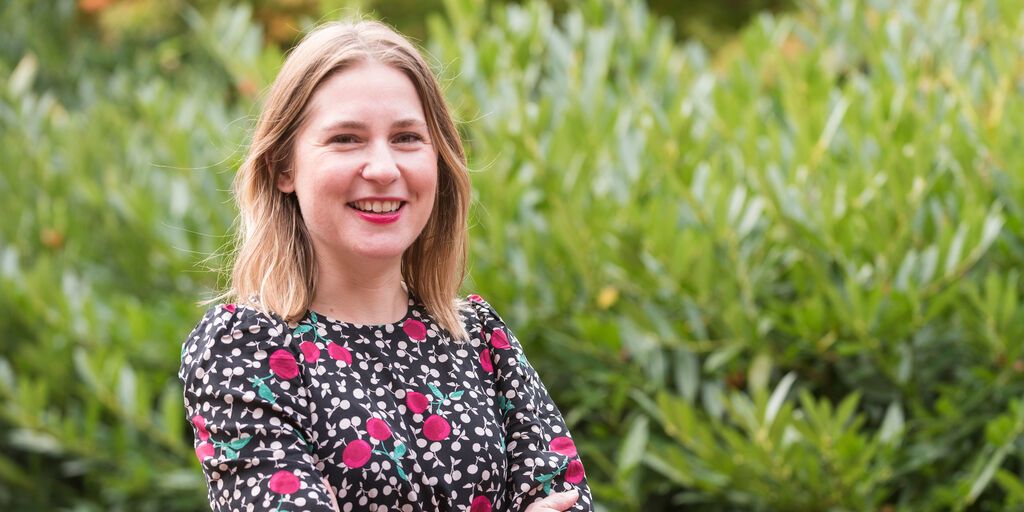
Dr Bora Kim is a Senior Lecturer in Hospitality Management at the University of Surrey. The future she envisions is one where inclusive travel experiences aren't just a niche market but the norm. With advancements in technology, she anticipates that the industry will be able to offer more personalised, accessible travel options that cater to the diverse needs of all travellers. This inclusivity will extend to the workforce as well, with a more diverse pool of employees bringing a wealth of perspectives to the table, enriching the travel experience for everyone.
“Through our discussions, research, and community engagements, we encourage students and industry leaders alike to critically examine and challenge existing norms, and to envision more inclusive and equitable practices.
It's about inspiring a new generation of professionals who are not only skilled in their trade but are also committed to leading with an inclusive mindset.”
Bora’s journey to becoming a Fellow of the Institute for Sustainability was deeply rooted in practical engagement with sustainability issues within the community and an academic pursuit to understand and foster corporate social responsibility alongside Equality, Diversity and Inclusion (EDI).
A pivotal moment in her journey before Surrey was leading the Foxdale Village Sustainability Consulting Project in State College, USA. This project involved close collaborations with the local community and authorities to enhance recycling programs within a retirement community, embracing SDG12 for Responsible Consumption and Production.
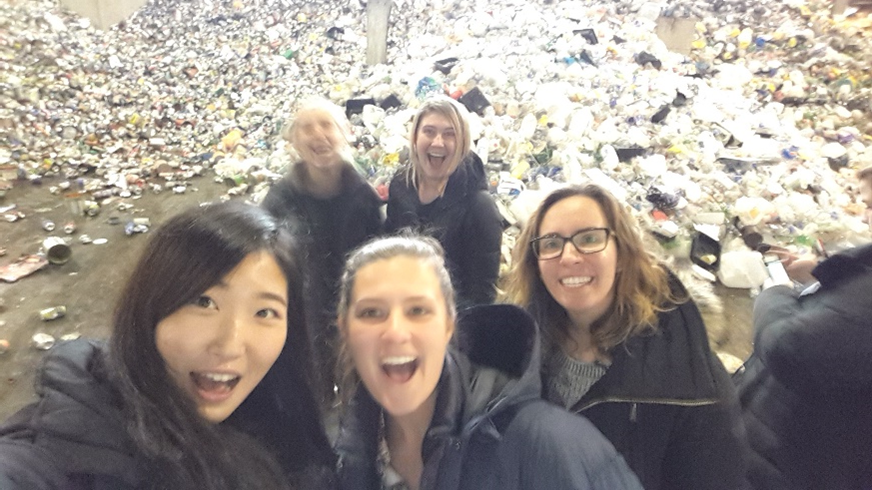
Dr Bora Kim (far left) 'in action' with the Foxdale Village Sustainability Consulting project team
Dr Bora Kim (far left) 'in action' with the Foxdale Village Sustainability Consulting project team
“This hands-on experience was instrumental in shaping my understanding of how sustainability principles can be applied in real-world settings, fostering a sense of community ownership and participation. It also underscored the importance of clear communication and strategic planning in driving sustainability initiatives.
Looking ahead, I see the field of tourism and hospitality evolving significantly, especially through the lenses of equality and inclusivity.”
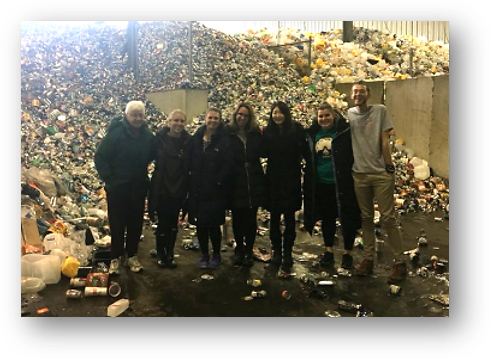
Dr Bora Kim (third from the right) with the Representative from the Foxdale Green Committee (far left).
Dr Bora Kim (third from the right) with the Representative from the Foxdale Green Committee (far left).
While it's true that women make up a significant portion of the workforce in tourism and hospitality, and similarly in academia, the landscape changes quite a bit as we look up the hierarchy.
Globally, women are underrepresented in top management and leadership roles within the industry, which mirrors some of the challenges seen in academia as well. In her role, Bora actively tries to contribute to shaping policies, practices, and discussions that prioritise inclusion not only as a concept but as a fundamental principle that guides work in academia and the industry.
Despite being in fields where women aren't a minority in numbers, the disparities in leadership representation and the unique challenges faced by women from diverse backgrounds, like myself, add layers to the conversation. As a Korean woman and a non-native English speaker born and raised in another culture, I've navigated my career within these intersecting identities. Interestingly, this intersectionality has also enabled me to connect deeply with international students and colleagues who might be experiencing similar cross-cultural challenges. It's opened up avenues for mentoring and support that are uniquely informed by my personal journey.”
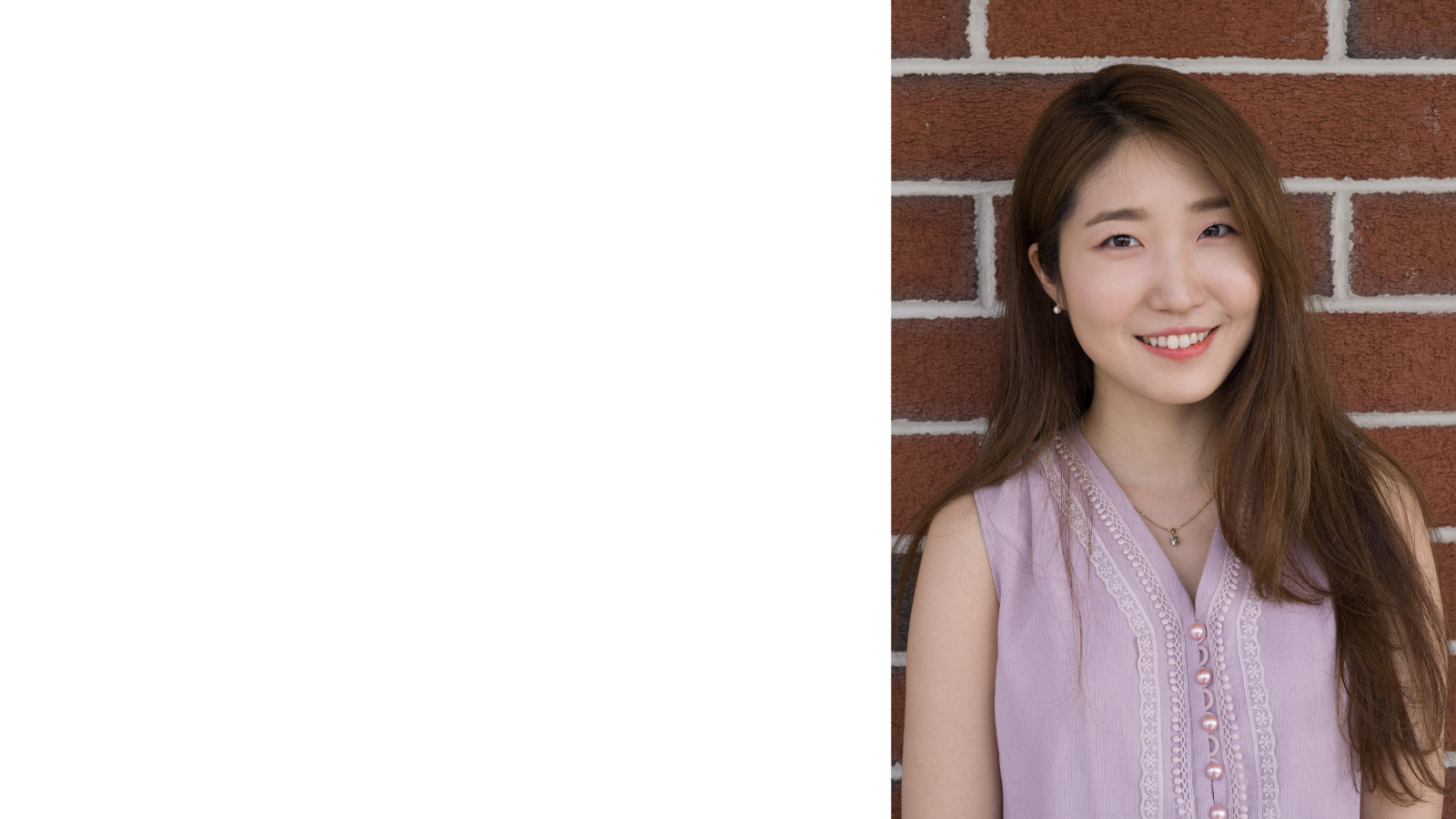
What next?
The Institute for Sustainability, and the University of Surrey more widely, can contribute to gender equality for our future generations by championing gender equality as a cultural practice that aligns with sustainability.
It is important to note the limitations of this article around EDI and the work still left to do for truly equitable representation as this would not only enrich the workplace but also be a powerful example for young people and students - the future leaders - to carry forward into society and through life-long careers.
By inspiring inclusion, the full potential of collective efforts to address complex real-world challenges can be faced globally, to create a more sustainable future for all.
Past articles from the University of Surrey
Following Daphne’s footsteps (Daphne Jackson Trust)
Resources
International Women’s Day #InspireInclusion
Women’s Network, University of Surrey
Equality. Diversity and Inclusion at the University of Surrey
Gender, Entrepreneurship and Social Policy Institute (GESPi)
Co-creating equitable, diverse and inclusive travel and tourism (CrEDIT)
DEIB Council for Institute for Hospitality
Annual Open Research and Research Culture Event
Enhancing Research Culture at the University of Surrey
Read more about the Institute for Sustainability here.
Read the latest UN Sustainable Development Goals report from the University of Surrey here.
